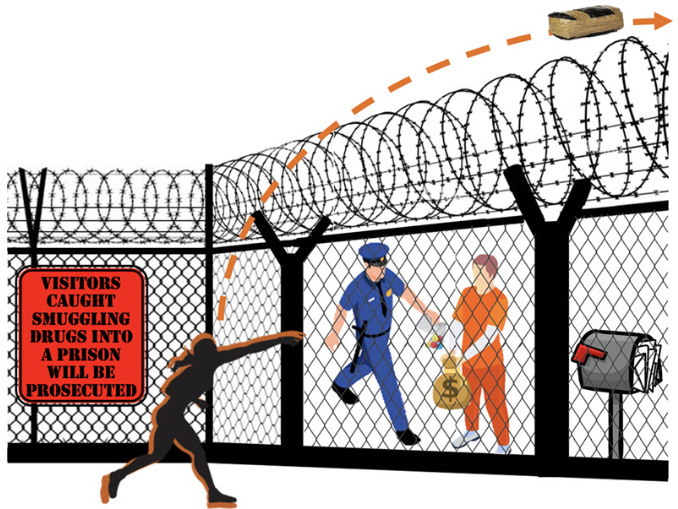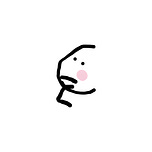I gnash my teeth just thinking about it.
After literally hallucinating and realising his behavior was, to put it mildly, inappropriate, Gregory House decides to quit his nasty opiate habit. Naturally it took him six seasons to do it, but as a then-hooked fan of the show I was concerned this would rob me of the only thing that made him an interesting character. Drug addiction made his cuntishness charming, a kind of soft landing for behavior otherwise unforgivable. I think we romanticise addiction in artists for the same reason - it rationalises otherness, alienates their genius from our own.
Sure enough, our antihero comes to a crossroads and loses his when a patient dies despite his egoic mission/need to diagnose problems. Coming home, we have an obligatory shot of him staring, wild-eyed, into the mirror. Shivers. Then, with a strength that belies this middle-aged, handicapped doctor he rips the mirror off the wall (metaphorical!) to reveal a hole in the wall with his secret stash of vicodin, apparently lurking in his en suite for the entirety of his recovery. He tips two pills into his palm and stares at them dramatically.
Anyone who knows anything about addiction knows what utter bullshit this scenario would be. Drug addicts are the most resourceful people on earth. Such is the pull of their craving, prisons know not to let inmates have access to…well, anything. Prisoners will smuggle drugs in the most ingenious ways, fostering an entire economy and narcotic supply chain under the strictest and most surveilled environments in the world.

In other words, there’s a 0% chance House would be able to recover from his addiction knowing his substance was meters away from where he slept. As long time readers will know, I’ve beaten an addiction or two in my time (No Mum! Not hard drugs!), and beating them required changing my environment - for example, long after I had lost a taste for cigarettes, I found myself standing outside while my friends smoked out of habit, so tightly was this activity bound up with socialising, taking a break, hanging out with friends.
That’s because when it comes to habits your environment is, well, everything.
Your Environment is You is Your Environment
It’s an old dichotomy - are you influenced more by genes or environment? The answer does seem to go back and forth, but for now assume there’s a feedback loop and it’s bi-directional - the science is inconclusive anyway. What’s certain is that the environment plays a large role. The environment is also the least controllable variable, whereas you - and only you - has a handle on your self.
As far as blockbuster nonfiction books go, James Clear’s Atomic Habits is hard to beat. I think he showed a generation of business leaders and aspirants that “your life is essentially your habits”. It’s a truism I happen to disagree with, but he’s correct in that outcomes are always a result of causal action, and are only possible with repeated actions moving in a specific direction. Clear breaks habits down into four components - cue, craving, response, reward. We’re going to focus on cues.
House would have had a cue - pain, a thought, maybe just that feeling of walking back into the house after a long day - you know, like going to the fridge for a beer. Our lives are chockers with cues. One of my favorites is when I’m conte mplating something challenging, my hand now reaches into my pocket for my phone to slip through social media, or check my emails again rather than answer the email in front of me (our cues rarely make much logical sense).
It’s not just addictions though. Cues are the grooves our behavior slides into to understand when to do something. Getting out of bed is the cue to go to the bathroom; your stomach rumbling at 5pm to start making dinner; a sense of quiet before bed the cue for a cup of tea and a book. Often, we don’t even realise we’re affected by cues, hence why companies invest millions of dollars in subliminal advertising.
Cues have the advantage of saving us from using too much cognitive bandwidth. If we have to deliberate and think about everything we do, life would quickly become overwhelming. Our environment, when filled with the right cues, becomes conducive to the habits we want to cultivate because we don’t have to fight against cues for poor habits. Changing habits takes a crazy amount of energy, so save it by uprooting toxic cues from your environment. In fact, the heart of creating or giving up habits is making it easy for our brains to do so.
The opposite of this is stashing your opiates in your room. Idiot.
By Design
Arthur Brooks’ article “Find the Place You Love. Then Move There” theorises we excel when we’re immersed in a place we love, a feeling called topophilia. This connection can be as shallow as somewhere we enjoy being, like a bathhouse, or somewhere with a deep spiritual connection. I, for example, have what I would describe as a spiritual connection with Cloudy Bay on Bruny Island thanks to a combination of childhood nostalgia and sheer natural beauty (I also have a spiritual connection to Chik-Fil-A, but that’s another story).
Associations with one’s environment, according to Brooks, can plug us in to the better versions of ourselves thanks to our brain’s endless capacity for connection; linking the smell of a certain soap with a summer trip away with friends, or the serenity of an ocean outlook with creative verve, or the intoxicating bustle of a metropolis with stimulating work. Conversely, I’ve encountered the worst parts of myself in other places, and associate them with aimlessness or heartbreak. Call it topophobia. Our connection to an environment matters - and, as House found out, to the things in our environment.
Here we come - inevitably - to my hobby horse; how digital technology cues our habits. I used the example of my hand mindlessly disappearing into my pocket for my phone, but the digital world has subtly cued all sorts of expectations and cues for suboptimal behavior. Over time, we’ve subtly lost patience with friction and expect convenience whenever we want something. Our phones, ubiquitously tucked away on our person, nudge us toward endless micro-rewards rather than persevering through something arduous. The type of information that fits on our phones - short news bites, reels, quick hits and hot takes - cues us to think about those topics in the same, shallow way they’re presented.
The environmental effect is so strong, research has found that just having your phone in the same room as you literally makes you dumber.
Think about that. You are so completely affected by your surrounds and the things in them that you have to take your phone out of your room or cop a couple IQ points. Don’t hide your opiates. Your brain knows where the fuck they are, just as it subconsciously knows where your phone is. You can’t trick your environment - but you can change it. My advice? Have a party and take all your opiates, then the next day jump on a plane and move across the country. Start clean, with a fresh sheet to build new, healthy connections on.















Share this post